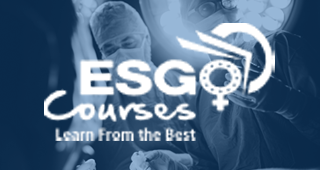 |
|
0 new discussion posts (21 published)
Sign in to view your progression
|
This educational e-module presents information about perioperative quality of care standards and strategies to improve them. Improvement in surgical techniques, concentration of care in tertiary specialised centres, and, more importantly, recent advances in critical care allow women to undergo complex gynaecologic oncology surgery successfully. Major efforts have been made in the optimisation of anaesthesia-resuscitation, homeostasis, and fluid balance therapy.
Preoperative fasting and carbohydrate loading, as well as early postoperative feeding have been advocated to achieve a metabolically fed state and decrease the risk of complications.
Preoperative immunonutrition has been proved to have an impact on the immunologic, inflammatory and nutritional response, decreasing the risk of postoperative complications and the length of hospital stay in patients with different tumours, including ovarian cancer, undergoing surgery. Recommendations of Enhanced Recovery After Surgery (ERAS), a multimodal perioperative care pathway, have been implemented in gynaecological oncology surgery.
The course contains the 5 following lectures. All the lectures are followed by a post-test to help you test and improve your knowledge. The number of test attempts is unlimited.
- Lecture 1: The role of the Intensive Care Unit (ICU) in postoperative management
- Lecture 2: Perioperative anaesthetic management
- Lecture 3: Pre- and postoperative care: Focusing on nutrition and immunonutrition
- Lecture 4: Enhanced Recovery Hospital Implementation Process (ERAS): A holistic approach
- Lecture 5: The place of robotic-assisted surgery in an Enhanced Recovery program
You can watch the lectures in any order that you like but you will only have access to the module post-test after viewing all the lectures.
After you have successfully completed all the post-tests, you will be able to submit your feedback to the course and print out your CME certificate.
The learning objectives are as follows:
1. To master the knowledge on new ERAS guidelines
2. To learn about the importance of nutrition and its impact on patients outcome
3. To acquire information on MIS in ERAS program
4. To understand the role of anesthesia in gynecological cancer patients care.
All speakers have reported no potential conflict of interests.
|
The role of the Intensive Care Unit (ICU) in postoperative management
|
|
|
Perioperative anaesthetic management
|
|
|
Pre- and postoperative care: Focusing on nutrition and immunonutrition
|
|
|
Enhanced Recovery Hospital Implementation Process (ERAS): A holistic approach
|
|
|
The place of robotic-assisted surgery in an Enhanced Recovery program
|
|
|
Final assessment & Evaluation
|
|





